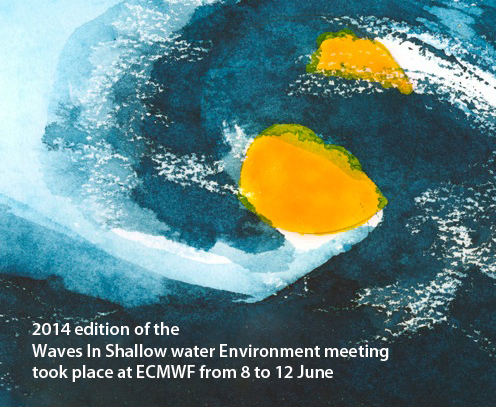

ECMWF hosted the 2014 meeting of the Waves In Shallow water Environment group (WISE), which took place from 8 to 12 June. It brought together about 80 oceanographers from around the world. The group’s aim is to improve the knowledge of physical processes involved in wave development and evolution from basin-scale to coastal environments. The meeting provides a forum to present and discuss novel techniques aimed at improving the numerics and reliability of wave models.
This year’s programme included talks by participants and ECMWF staff, keynote addresses on specific topics, and side meetings. ECMWF’s Adrian Simmons and Peter Janssen both addressed delegates; Adrian giving the introductory presentation on a reanalysis of the weather and ocean waves during the D-Day landing, whilst Peter presented developments in coupled ocean wave and ocean circulation modelling at ECMWF.
Wind waves represent a basic parameter of interest for marine applications. In the open ocean, they dictate the design and operational conditions of offshore structures and vessels. Close to the coast, the design and planning of any activity depends on the waves and on the local environment they create. The impact of waves on coastline flooding and defence is also important.
On a wider perspective, wind waves regulate to a considerable extent all transfers taking place at a variety of scales at the air-sea interface, e.g. momentum, energy, humidity, heat, aerosol. These transfers play a key role for atmosphere, ocean and sea ice dynamics. Modelling these exchanges is essential in the development a fully coupled Earth-system.
More information: WISE pages
